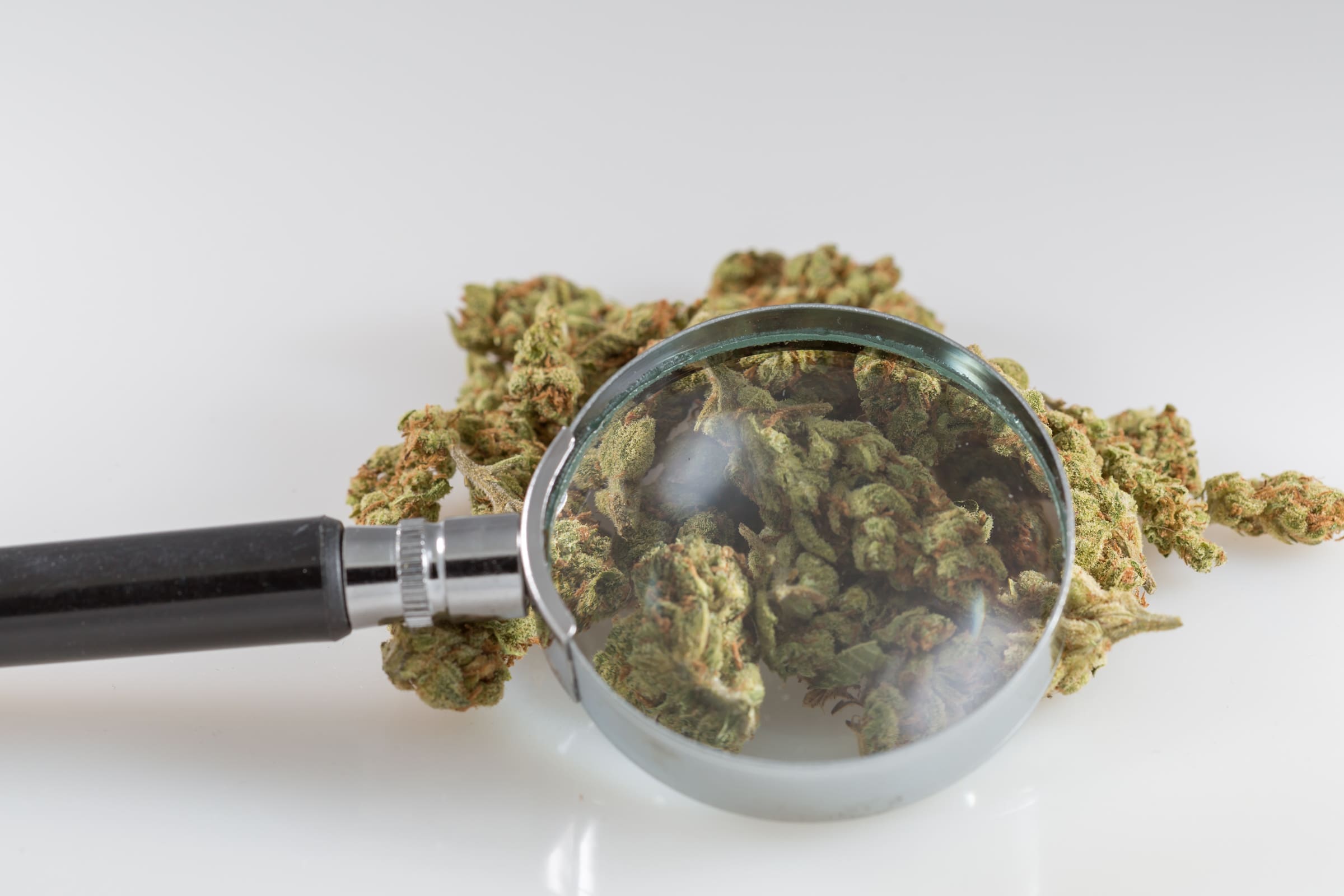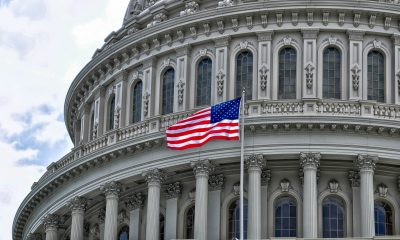Politics
Senate Passes Marijuana Research Bill One Week After House Approves Similar Legislation

The Senate on Tuesday night approved a bipartisan bill meant to promote studies into the effects of marijuana. The move comes one week after the House passed separate cannabis research legislation.
The Cannabidiol and Marihuana Research Expansion Act, which was filed last year, advanced by unanimous consent after being slightly amended on the floor. Its main function would be to streamline the application process for researchers who want to study the plant and to encourage the Food and Drug Administration (FDA) to develop cannabis-derived medicines.
It would also clarify that physicians are allowed to discuss the risks and benefits of marijuana with patients and require the U.S. Department of Health and Human Services (HHS) to submit a report on those potential health benefits, as well one on barriers to cannabis research and how to overcome those obstacles.
Sens. Dianne Feinstein (D-CA), Brian Schatz (D-HI) and Chuck Grassley (R-IA) are the lead sponsors of the bill. In June, the trio also sought to include the proposal in the annual renewal of the National Defense Authorization Act, but that didn’t happen.
While time is running short before end of the session in January, the fact that the House recently approved a similar bill raises the chances that some form of cannabis research legislation could cross the finish line sooner rather than later.
One possibility would be for the House to immediately move to pass the Senate bill, which would send it to President Trump’s desk.
That said, if House lawmakers insist on something closer to the bill they already advanced last week, the resulting negotiations could mean that lawmakers might not reach an agreement on a unified version until some time in 2021.
A major difference in the respective bills is that the House-passed measure contains provisions that would allow scientists to obtain cannabis from state-legal dispensaries for research purposes. That’s designed to help them avoid depending on marijuana that’s produced at the only federally authorized manufacturing facility at the University of Mississippi.
Research has shown that product from the facility is chemically more similar to hemp than to the marijuana that consumers are actually buying from licensed retailers, raising questions about the real-world applicability of studies using it.
Nonetheless, the National Institute on Drug Abuse this month announced its intent to renew a contract with the producer, without giving others an opportunity to apply.
“Our bill will remove excessive barriers that make it difficult for researchers to study the effectiveness and safety of marijuana, and hopefully, give patients more treatment options,” Schatz told Marijuana Moment on Tuesday night. “The medical community agrees that we need more research to learn about marijuana’s potential health benefits, but our federal laws today are standing in the way.”
Ahead of the vote, Feinstein filed an amendment in the nature of a substitute that would add requirements for researchers who want to increase the quantity of cannabis they’re using for studies.
The amendment would also stipulate that it “shall not be a violation of the Controlled Substances Act (CSA) for a State-licensed physician to discuss” the risk and benefits of marijuana and cannabis-derived products with patients. As introduced, the more broadly stated that it “shall not be unlawful” for doctors to have such conversations. It’s not clear why the language was revised to more narrowly protect physicians from penalties under the CSA alone.
Another change clarifies that the definition of cannabidiol is “derived from marihuana that has a delta–9 tetrahydrocannabinol level that is greater than 0.3 percent,” whereas the initial bill didn’t include the “delta-9” qualifier ahead of THC.
In general, the first section of the bill concerns the application process for institutions seeking federal authorization to research marijuana. The U.S. attorney general would be given a 60-day deadline to either approve a given application or request supplemental information from the applicant. It would also create an expedited pathway for researchers who request larger quantities of Schedule I drugs.
The second major section of the bill is about FDA approval of marijuana-derived drugs. One way to encourage such developments is through allowing “accredited medical and osteopathic schools, practitioners, research institutions, and manufacturers with a Schedule I registration” to cultivate their own cannabis for research purposes, a summary says.
The Drug Enforcement Administration would get a mandate to approve applications to be manufacturers of marijuana-derived, FDA-approved drugs under the bill. Manufacturers would also be allowed to import cannabis materials to facilitate research into the plant’s therapeutic potential.
Finally, a fourth section would require HHS to look at the health benefits and risks of marijuana as well as policies that are inhibiting research into cannabis that’s grown in legal states and provide recommendations on overcoming those barriers.
“Existing regulations make medical marijuana research difficult and have prevented us from understanding exactly how medical marijuana can be used safely and effectively to treat various conditions,” Feinstein said in a press release. “Our bill streamlines the research process and paves the way for marijuana-derived medications that are FDA-approved to treat serious medical conditions, like intractable epilepsy, in a way that will keep consumers safe.”
Existing regulations make medical marijuana research difficult and have prevented us from understanding how it can be used safely and effectively. I’m glad the Senate passed our bill last night to streamline the research process.https://t.co/o5A1ceA6jW
— Senator Dianne Feinstein (@SenFeinstein) December 16, 2020
Grassley said that the “bipartisan bill is critical to better understanding the marijuana plant and its potential benefits and side effects.”
“It will empower the FDA to analyze CBD and medical marijuana products in a safe and responsible way so that the American public can decide whether to utilize them in the future based on sound scientific data,” he said. “Researching marijuana is widely supported by my colleagues on both sides of the aisle, and it’s a smart step forward in addressing this current schedule I drug.”
The bill’s other original cosponsors include Sens. Dick Durbin (D-IL), Thom Tillis (R-NC), Tim Kaine (D-VA), Joni Ernst (R-IA), Kevin Cramer (R-ND) and Amy Klobuchar (D-MN).
The proposal has been endorsed by mainstream medical organizations like American Academy of Pediatrics, American Medical Association, American Psychological Association and American Society of Addiction Medicine, as well as pro-legalization groups such as Americans for Safe Access, Multidisciplinary Association of Psychedelic Studies and NORML.
Read the amended marijuana research bill below:
Senate Marijuana Research A… by Marijuana Moment
Rand Paul Files Bill To Increase Hemp THC Limit And Address Other Industry Concerns
















